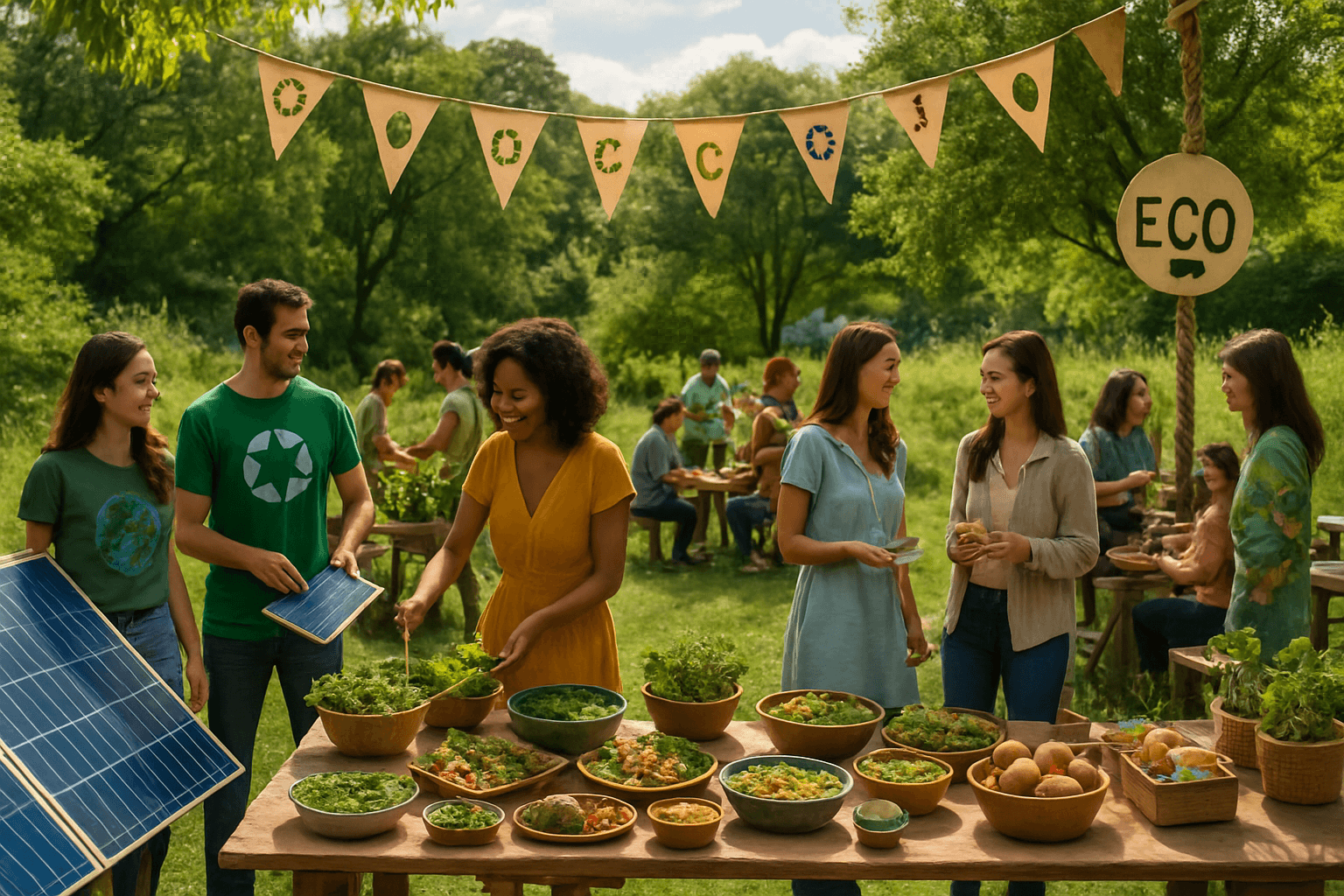In today’s world, hosting eco-friendly events is not only a trend but a necessity. As awareness of environmental issues grows, both organizers and attendees are seeking ways to reduce environmental footprints while still delivering memorable experiences. This guide explores practical sustainable practices that can help make your next event both eco-conscious and successful.
Choosing Eco-Friendly Venues
Selecting the right venue is crucial for setting the foundation of a sustainable event.
Assessing Venue Sustainability
When choosing a venue, consider its environmental policies and initiatives.
- Energy-Efficient Facilities: Opt for venues that use renewable energy sources such as solar or wind power. Facilities equipped with energy-efficient lighting and appliances can significantly reduce the event’s carbon footprint.
- Waste Management Systems: Prioritize locations that have robust recycling and composting programs. These venues can streamline waste reduction efforts during the event.
Sustainable Catering Options
The food served at events can also align with eco-friendly principles.
Local and Organic Menus
Catering sustainably involves thinking about the source and type of food served.
- Local Sourcing: Choose caterers that prioritize locally-sourced ingredients to reduce transportation emissions and support local farmers.
- Plant-Based Menus: Offering plant-based menu options can significantly reduce the environmental impact since they typically require fewer resources to produce compared to meat-based items.
Minimized Waste
Implement strategies to manage food waste effectively.
- Portion Control: Work with caterers to offer serving sizes that meet appetites without excess food waste. Consider buffet-style serving to allow guests to take only what they will eat.
- Compost and Donate: Set up composting stations for food scraps and make arrangements for leftover food donations to local charities.
Eco-Friendly Decor and Event Materials
Using sustainable decor can drastically cut down on wasteful practices.
Green Decor Choices
Incorporate elements that harmonize with the environment.
- Reusable Items: Use decor items that can be re-used or rented, such as potted plants, fabric banners, or glassware, which aren’t destined for landfill after a single use.
- Biodegradable Materials: Consider decorations made from biodegradable materials such as bamboo or recycled paper, which can decompose without harming the environment.
Sustainable Materials for Event Essentials
Ensure other elements of your event also adhere to sustainable practices.
- Digital Invitations: Use electronic invitations and communications to minimize paper use while maintaining a professional appearance with customizable design options.
- Reusable Name Tags and Badges: Instead of single-use plastics, opt for badges made from sustainable materials that can be collected and reused multiple times.
Encouraging Sustainable Transportation
Transportation contributes significantly to an event’s carbon footprint.
Promoting Eco-Conscious Travel
Incentivizing sustainable transport can make a big difference.
- Public Transport Options: Encourage the use of public transportation by providing detailed information and incentives, such as complimentary passes or discounts.
- Carpooling Apps: Promote the use of carpooling apps that organize shared rides among attendees, reducing the number of vehicles on the road.
Conclusion
By integrating sustainable practices into every aspect of planning, from the venue and food to decor and transportation, you can host events that not only delight your attendees but also take care of the planet. These strategies demonstrate your commitment to environmental responsibility while still delivering a high-quality experience. As more guests and companies prioritize sustainability, eco-friendly events set the standard for conscientious celebration planning.
